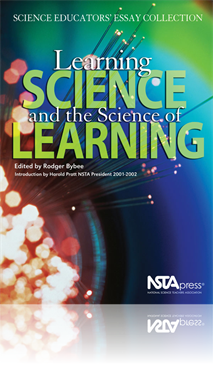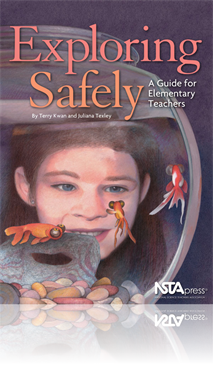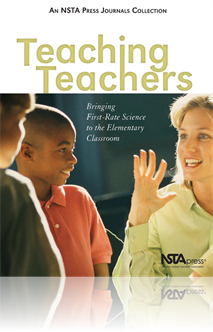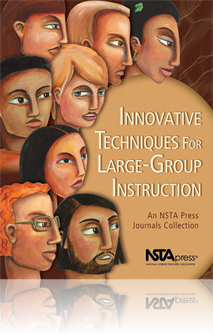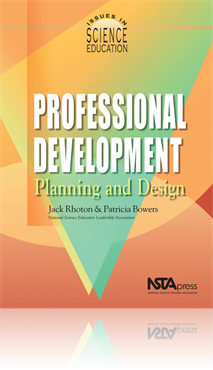All Book Chapters
Book Chapter
Using Assessment to Help Students Learn
Assessment in the classroom is more than tests and quizzes on Friday. It is an everyday feature of classroom life. Students and teachers use assessment, for example, when they gauge the quality of a response to a question, judge the accuracy of a dia...
Book Chapter
Investigative science provides the opportunity for students to learn new skills. But it also means more work and responsibility for everyone. An active science program requires the distribution, use, and care of much more material and equipment tha...
Book Chapter
Sometimes you wonder how you’re going to get everything done. Each time you check off an item, two more appear. Those are the times to take stock of everything you’ve accomplished. Science safety can be like that. Just when you think you have eve...
Book Chapter
Consider the changes. Yesterday’s one-room schoolhouse had one teacher responsible for every subject, every grade, and maintenance of the classroom and schoolhouse. Today’s self-contained classroom has one teacher responsible for a diverse group ...
Book Chapter
When students with limited reading, mathematical, or communication skills engage in laboratory activities, new challenges pose additional safety risks to everyone in the classroom. It’s certainly possible—and good practice—to include students o...
Book Chapter
Government studies have indicated that more than 40 percent of school buildings are in such poor condition that they are unsafe for children. Even new facilities can be too crowded or architecturally unsuited for exploration. It’s important to reco...
Book Chapter
It takes a lot of “stuff” to conduct an activity-based science program. Teachers often use personal funds to purchase materials to use in their classes. They also save a lot from year to year and collect items for possible future use. But saving ...
Book Chapter
Maintaining living things in a classroom requires knowledge and preparation. It also requires the proper equipment and space. There are two primary goals in the study of living things: first, we want our students to respect life, and second, we want ...
Book Chapter
Today’s students have contact with many more complex chemicals in their homes than ever before but they may have little awareness of physical and chemical properties of those materials. This is a situation that can be extremely hazardous. Children�...
Book Chapter
Many safety books focus on chemistry, the “wet” physical science. Yet most elementary curricula appropriately concentrate on physical science that is easier to see—and more developmentally appropriate. The physical sciences provide great opport...
Book Chapter
Your own classroom is rich with resources and activities, but there are some things that simply can’t be done there. Therefore, well-planned field trips are a vital part of the total educational program. They play an important role in helping stude...
Book Chapter
Science is Part of the Big Picture
By becoming active learners themselves, teachers recognize that science is part of the “big picture,” and they are able to link newly constructed ideas about active learning to other pedagogical initiatives. It is important not to neglect theory ...
Book Chapter
How Do College Students Best Learn Science?
This paper is based on William Leonard’s “How Do College Students Learn Science? Chapter 1: Effective Teaching and Course Management for University and College Science Teachers,” edited by E. Siebert, M. Caprio, and C. Lyda. Dubuque, IA: Kendal...
Book Chapter
Standards have become a part of the educational landscape. In this chapter, we survey the origins of national standards; reflect on their power, in particular those in science education; and examine the role professional development must play if stan...
Book Chapter
The Role of the Science Leader in Implementing Standards-Based Science Programs
Although most of the literature of reform and systemic change focuses on policy, programs, and practices that the leaders should be responsible for producing, this chapter will emphasize what is known about how leaders bring about these improvements ...


